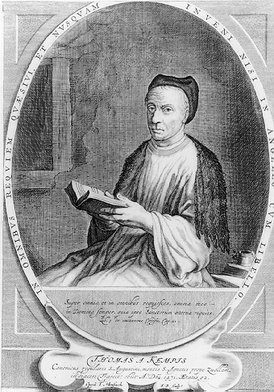 ENDOW (Educating on the Nature & Dignity of Women) is a Catholic educational program bringing women together to discover what it means to be a woman, made in God's image and likeness holding a God-given dignity known in being a person. ENDOW is a new feminism promoting the beauty of being a woman.
ENDOW (Educating on the Nature & Dignity of Women) is a Catholic educational program bringing women together to discover what it means to be a woman, made in God's image and likeness holding a God-given dignity known in being a person. ENDOW is a new feminism promoting the beauty of being a woman.Spiritual Life: July 2010 Archives
 ENDOW (Educating on the Nature & Dignity of Women) is a Catholic educational program bringing women together to discover what it means to be a woman, made in God's image and likeness holding a God-given dignity known in being a person. ENDOW is a new feminism promoting the beauty of being a woman.
ENDOW (Educating on the Nature & Dignity of Women) is a Catholic educational program bringing women together to discover what it means to be a woman, made in God's image and likeness holding a God-given dignity known in being a person. ENDOW is a new feminism promoting the beauty of being a woman.
through Jesus Christ our Lord, who lives and reigns with you and the Holy Spirit, one God, for ever and ever.
A few paragraphs that I thought would be germane for reflection and deeper prayer.
Pope John Paul II ... wrote that "forgiveness is above all a personal choice, a decision of the heart to against the natural instinct to pay back evil with evil. The measure of such a decision is the love of God who draws us to himself in spite of our sin. Forgiveness therefore has a divine source and criterion. Forgiveness, as a fully human act, is above all a personal initiative (World Day of Peace message 2002). The ability to forgive lies at the very basis of the idea of a future society marked by justice and solidarity. Peace is essential for development, but true peace is made possible only through forgiveness and reconciliation" (ibid).
Pope Benedict XVI, in his Message to the youth in 2007, invited them to "dare to love" and not to desire anything less for their life than a love that is strong and beautiful: love that is capable of making the whole of their existence a joyful undertaking of giving themselves as a gift to God and their brothers and sisters, in imitation of the One who vanquished hatred and death forever through love (cf. Rev 5:13). Love is the only force capable of changing the heart of the human person and of all humanity, by making fruitful the relations between men and women, between rich and poor, between cultures and civilizations.
Pope John Paul II in fact was convinced that the future far lies in the hands of the youth. The future of peace lies in their hearts. To construct history, as they can and must, they to free history from the false paths it is pursuing. To do this, the youth must have a deep trust in the grandeur of the human vocation -a vocation to be pursued with respect for truth for the dignity and inviolable rights of the human person. Pope Wojtyla felt the feeling of the modern youth indeed. He said that he saw them being touched by the hunger for peace; that they are troubled by so much injustice around them and sense overwhelming danger in the gigantic stockpiles of arms and in the threats of nuclear war; that they suffer when they see widespread hunger and malnutrition and are concerned about the environment today and for the coming generations; that they are threatened by unemployment and many already without work and without the prospect of meaningful employment and are upset by the large number of people who are oppressed politically and spiritually and who cannot enjoy the exercise of their basic human rights as individuals or as a community. All this can give rise to a feeling that life has little meaning. In this situation, some may be tempted to take flight from responsibility: in the fantasy worlds of alcohol and drugs, in short-lived sexual relationships without commitment to marriage and family, in indifference, in cynicism and even in violence. Pope John Paul II invited them therefore to be themselves on guard against the fraud of a world that wants to exploit or misdirect their energetic and powerful search for happiness and meaning. He invited them not to avoid the search for the true answers to the questions that confront them (World Day of Peace 1985).
L'Osservatore Romano
June 23, 2010
Facing our own reality, as it is present to us right now, can be an extraordinarily painful experience. Living in either the past or the future is not of the Holy Spirit. But we sometimes find ourselves nursing old wounds, angers, being scared by weaknesses. However, experience tells us if we look carefully, that living reality is superbly beautiful and freeing and loving, too. Fr Giussani points us to keep life real, to be faithful to life and to accept the grace of recognizing that Christ is in the center of life. Easier said than done most days. One's sin can be overwhelming and it has the ability to define our being if we are not careful. I found the following paragraph of Abbot Alban's to be helpful and real; he names the virtues we need to live as God wants us to live. Perhaps you'll take some solace from Abbot Alban's brief note, too,
Time and again, during our life, we shall meet with hardships which are the inevitable accompaniment of any attempt to lead a supernatural life on this earth. These will arise not only from the temptations which ... are the consequence of our own weakness and fault but also from all those trials and problems that arise from circumstances and people beyond our own control, things which will demand from us much humility, fortitude, generosity, forgiveness, patience with the "personality problems" [of others], patience with ourselves.... Only the spirit of compunction of heart will enable us to accept them ... [and] to transform them from bitter frustrations into a patient and even joyful sharing of the sufferings of Christ.
Alban Boultwood,
Alive to God: Meditations for Everyone (Baltimore: Helicon, 1964), 64.
Father James Kubicki, director of the Apostleship of Prayer, posted a note on his website inviting pray-ers/readers to send him possible prayer intentions.
As he said, "People often ask us where the Pope's prayer intentions come from. That's a great question with a great answer: they come from the Pope. And they can even come from you. If you have a prayer intention and would like more than 50 million people to pray for it, I invite you to send it to us, keeping in mind that it should be something that concerns the needs of the Church and the world. We forward intentions to our international office in Rome, where a number of them are selected to present to the Holy Father."
This is important to do. As you know, on the first day of each month I post for our prayer the intentions given by Pope Benedict to this Apostleship of Prayer. Well, they come from somewhere, written and proposed by someone, coming from real experience and real need that are placed before God.
You may send Father Kubicki your proposed prayer intention by reply e-mail or mail:
Apostleship of Prayer
3211 South Lake
Drive, Suite 216
Milwaukee, WI 53235-3717
(414) 486-1152
info@apostleshipofprayer.org
PS: Don't forget to make your daily morning offering, today!

